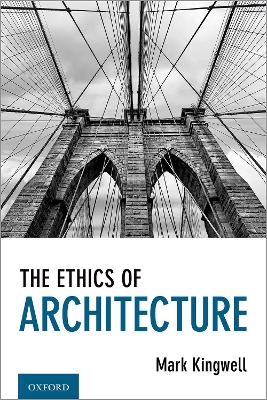
The Ethics of Architecture
Seiten
2021
Oxford University Press Inc (Verlag)
978-0-19-755854-6 (ISBN)
Oxford University Press Inc (Verlag)
978-0-19-755854-6 (ISBN)
The Ethics of Architecture offers a short and approachable scholarly introduction to a timely question: in a world of increasing population density, how does one construct habitable spaces that promote social goals such as health, happiness, environmental friendliness, and justice? A preface offers specific discussion of architecture during and after the COVID-19 pandemic.
A lively and accessible discussion of how architecture functions in a complex world of obligation and responsibility, with a preface offering specific discussion of architecture during and after the COVID-19 pandemic.
What are the special ethical obligations assumed by architects? Because their work creates the basic material conditions that make all other human activity possible, architects and their associates in building enjoy vast influence on how we all live, work, play, worship, and think. With this influence comes tremendous, and not always examined, responsibility. This book addresses the range of ethical issues that architects face, with a broad understanding of ethics. Beyond strictly professional duties - transparency, technical competence, fair trading - lie more profound issues that move into aesthetic, political, and existential realms. Does an architect have a duty to create art, if not always beautiful art? Should an architect feel obliged to serve a community and not just a client? Is justice a possible orientation for architectural practice? Is there such a thing as feeling compelled to "shelter being" in architectural work? By taking these usually abstract questions into the region of physical creation, the book attempts a reformulation of "architectural ethics" as a matter of deep reflection on the architect's role as both citizen and caretaker. Thinkers and makers discussed include Le Corbusier, Martin Heidegger, Lewis Mumford, Rem Koolhaas, Jane Jacobs, Arthur Danto, and John Rawls.
A lively and accessible discussion of how architecture functions in a complex world of obligation and responsibility, with a preface offering specific discussion of architecture during and after the COVID-19 pandemic.
What are the special ethical obligations assumed by architects? Because their work creates the basic material conditions that make all other human activity possible, architects and their associates in building enjoy vast influence on how we all live, work, play, worship, and think. With this influence comes tremendous, and not always examined, responsibility. This book addresses the range of ethical issues that architects face, with a broad understanding of ethics. Beyond strictly professional duties - transparency, technical competence, fair trading - lie more profound issues that move into aesthetic, political, and existential realms. Does an architect have a duty to create art, if not always beautiful art? Should an architect feel obliged to serve a community and not just a client? Is justice a possible orientation for architectural practice? Is there such a thing as feeling compelled to "shelter being" in architectural work? By taking these usually abstract questions into the region of physical creation, the book attempts a reformulation of "architectural ethics" as a matter of deep reflection on the architect's role as both citizen and caretaker. Thinkers and makers discussed include Le Corbusier, Martin Heidegger, Lewis Mumford, Rem Koolhaas, Jane Jacobs, Arthur Danto, and John Rawls.
Mark Kingwell is a Professor of Philosophy at the University of Toronto and a contributing editor of Harper's Magazine. He has lectured widely to academic and popular audiences throughout North America, Europe, Australia, and the Middle East. He is a Fellow of the Royal Society of Canada and of the Royal Society of Arts (U.K.).
Preface
Built Forms and Ethics: The General Issues
Chapter 1. Creating Buildings
Chapter 2. Creating Environments
Chapter 3. Creating Communities
Chapter 4. Creating Art
Chapter 5. Creating Justice
Chapter 6. Creating Being
Chapter 7. Epilogue: Afterthoughts; or Thoughts After Walking
Acknowledgments
| Erscheinungsdatum | 23.03.2021 |
|---|---|
| Verlagsort | New York |
| Sprache | englisch |
| Maße | 211 x 145 mm |
| Gewicht | 295 g |
| Themenwelt | Naturwissenschaften ► Biologie ► Ökologie / Naturschutz |
| Technik ► Architektur | |
| Wirtschaft ► Betriebswirtschaft / Management ► Unternehmensführung / Management | |
| ISBN-10 | 0-19-755854-2 / 0197558542 |
| ISBN-13 | 978-0-19-755854-6 / 9780197558546 |
| Zustand | Neuware |
| Informationen gemäß Produktsicherheitsverordnung (GPSR) | |
| Haben Sie eine Frage zum Produkt? |
Mehr entdecken
aus dem Bereich
aus dem Bereich
Lehrbuch zu Grundlagen, Technologie und Praxis
Buch | Hardcover (2022)
Hanser (Verlag)
34,99 €


